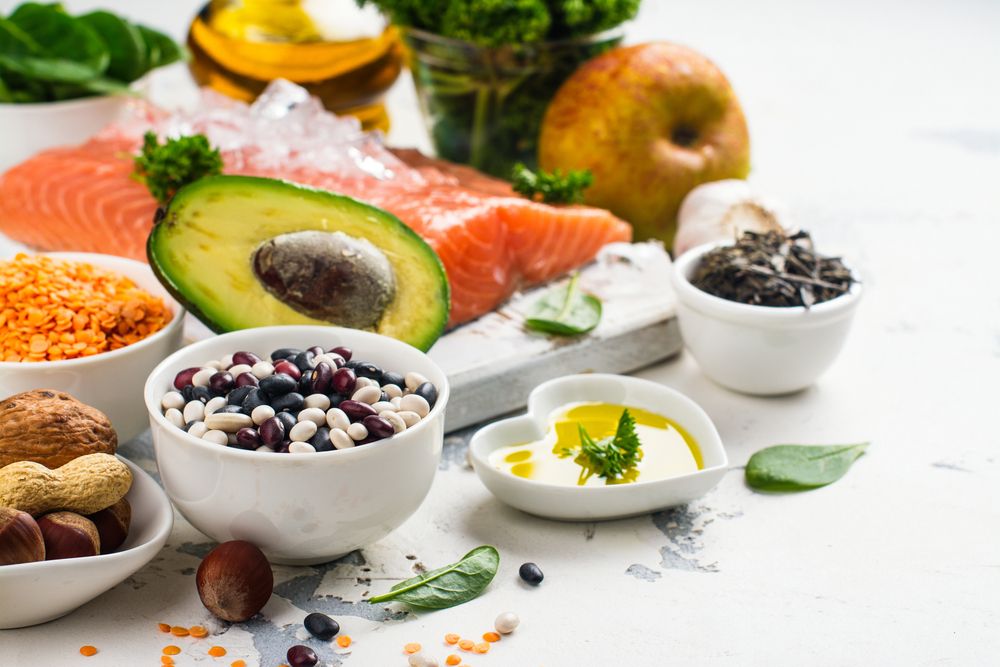High cholesterol levels are a widespread concern, given their significant implications for heart health and the increased susceptibility to cardiovascular disease. With over 80 million Americans grappling with elevated cholesterol, it's no surprise that many are turning to natural methods to lower their levels, including understanding which foods can help.
While various factors influence cholesterol levels, some beyond our control like genetics, our dietary choices wield considerable influence. Integrating heart-healthy foods into daily meals can be pivotal in reducing LDL (bad cholesterol) and increasing HDL (good cholesterol), thereby fostering overall heart health and diminishing the risk of heart disease.
Within this framework, specific foods have gained recognition for their cholesterol-lowering attributes. These encompass nutrient-packed fruits and vegetables, whole grains, lean proteins, and beneficial fats.
This piece aims to acquaint you with 13 delectable and adaptable foods proven to aid in naturally regulating cholesterol levels. Alongside integrating physical activity into your routine and adhering to any prescribed medications from your physician, adding these foods to your diet could serve as a pivotal stride toward attaining optimal cholesterol levels.
1) Pulses
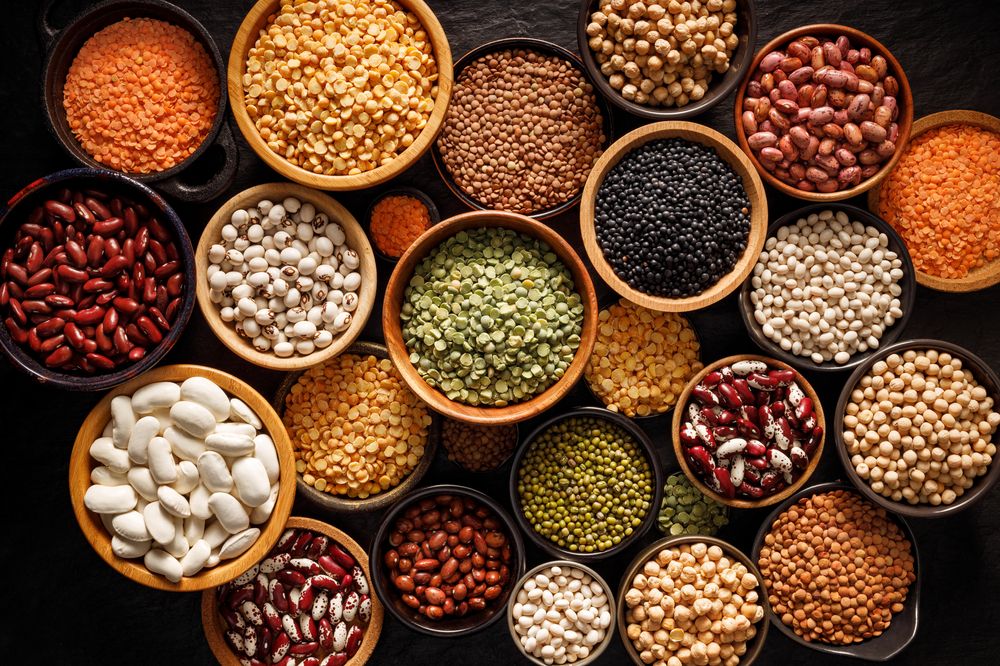
Pulses, encompassing foods like lentils and chickpeas, not only serve as versatile and nutritious elements of a balanced diet but also play a significant role in promoting and maintaining healthy cholesterol levels. Among the numerous benefits of pulses for cholesterol management, their notable soluble fiber content stands out. Soluble fiber plays a vital role in cholesterol regulation by binding with cholesterol particles in the digestive system and facilitating their removal from the body before they can circulate in the bloodstream.
Research published in Nutrients revealed that substituting just 1 ounce of common protein sources (such as meat, poultry, eggs, seafood, and soy products) with ¼ cup of pulses can result in a cholesterol reduction of over 10%. Additionally, findings indicated that consuming ½ cup of pulses provides 10% more fiber, magnesium, copper, and potassium compared to 1 ounce of refined grains like white rice.
Prominent health authorities, including the American Heart Association, endorse the incorporation of plant-based proteins such as pulses to mitigate the risk of heart disease, high blood pressure, and elevated cholesterol levels.
2) Mushrooms

Mushrooms, renowned for their distinct flavors and nutritional richness, exert a notable influence on cholesterol management. They harbor a mix of potent compounds, including beta-glucans and chitin, which are instrumental in reducing LDL (bad cholesterol) while potentially elevating HDL (good cholesterol).
A meta-analysis featured in the American Journal of Medicine, which scrutinized seven prospective studies, revealed that incorporating mushrooms into the diet may yield beneficial effects on both HDL and LDL cholesterol levels.
Much like the popular tradition of Taco Tuesday, adopting "Mushroom Monday" can be a delightful strategy to integrate more mushrooms into your weekly dietary regimen.
3) Macadamia nuts
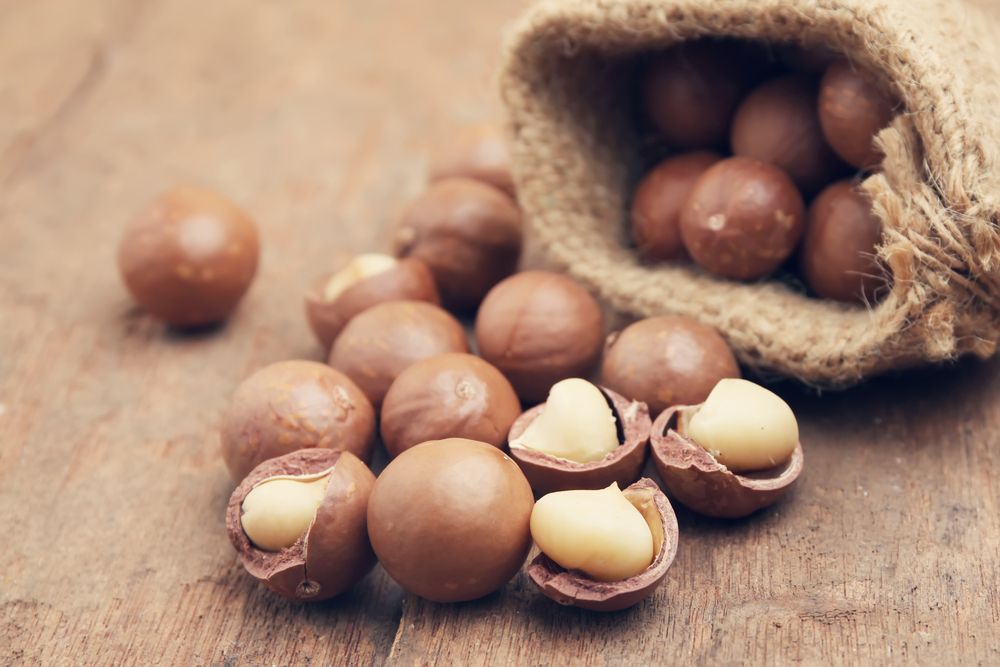
Macadamia nuts are renowned for their indulgent, buttery flavor and their contribution to heart health. These nuts are abundant in monounsaturated fats, akin to those present in olive oil, renowned for their cholesterol-lowering properties. Additionally, they serve as a rich source of antioxidants, dietary fiber, and phytosterols, all of which play vital roles in promoting overall heart health.
A randomized trial showcased in the Journal of Nutritional Science indicated that incorporating macadamia nuts into the daily diet not only fails to induce weight gain but also demonstrates cholesterol-lowering effects.
4) Prunes
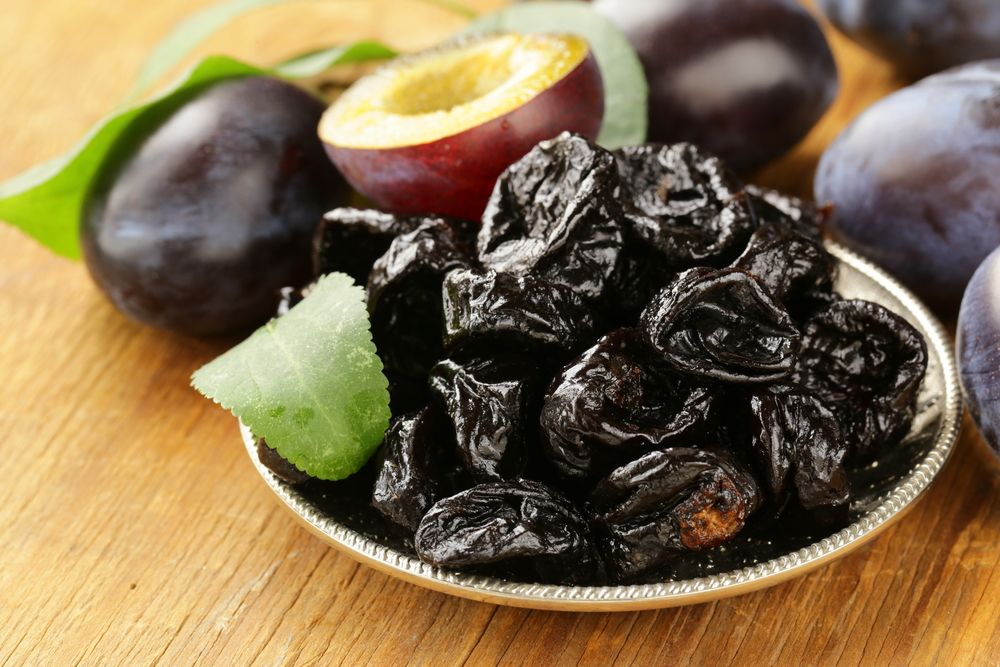
Prunes offer more than just assistance with digestion; they are rich in fiber and various nutrients that could bolster heart health.
Research suggests a correlation between regular prune consumption and enhancements in cholesterol levels, particularly among older adults. In men aged 55 and above, consuming prunes has been associated with elevated HDL levels and an improved total cholesterol to HDL ratio. Similarly, among post-menopausal women, daily intake of four to six prunes has been linked to increased HDL levels and reduced inflammatory markers like TNF-a. Additionally, prunes contain soluble fiber, which has been independently demonstrated to benefit cholesterol levels.
5) Oats
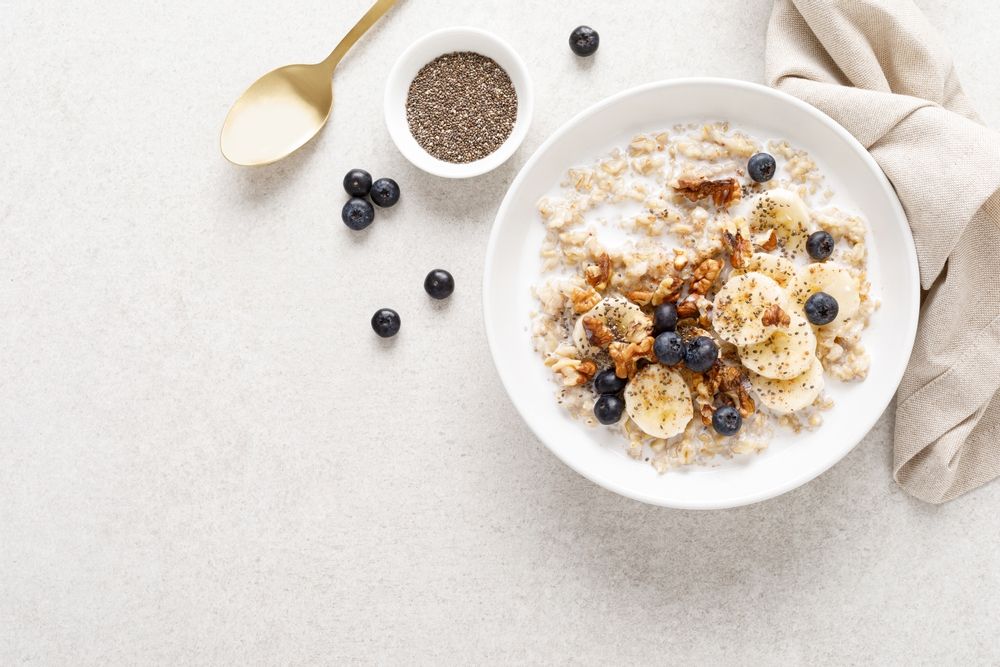
Oats are abundant in beta-glucan, the potent cholesterol-lowering compound also found in mushrooms. Upon consumption, beta-glucan forms a gel-like substance in the gut, effectively binding to cholesterol-rich bile acids and impeding their absorption into the bloodstream. This mechanism not only diminishes LDL (low-density lipoprotein) or "bad" cholesterol levels but also fosters overall digestive well-being. Incorporating oats into your daily diet presents a practical and natural approach to managing cholesterol levels and mitigating the risk of cardiovascular disease.
Research indicates that oat consumption is associated with an average reduction of 5% in total cholesterol levels and 7% in LDL cholesterol levels.
6) Avocado

Avocados, a staple in guacamole and fish tacos are a favored fruit renowned for infusing your diet with healthy fats when incorporated into meals. In a clinical trial, participants who integrated an avocado into their daily intake as part of a moderate-fat diet experienced reductions in total cholesterol and LDL-cholesterol, along with enhancements in the ratio of total cholesterol to beneficial HDL-cholesterol levels, compared to counterparts who did not consume avocado (adhering to low-fat or moderate-fat oil diets). While the findings of a single study should not be universally applied to broader and more diverse populations, the study contributes to the mounting evidence showcasing avocados as a heart-healthy fruit.
In a separate clinical investigation, 45 overweight or obese adults supplemented their low-fat and moderate-fat oil diets with one avocado per day. This addition led to heightened blood antioxidant levels and decreased oxidation of small, dense LDL-cholesterol levels, as observed by researchers.
7) Garlic
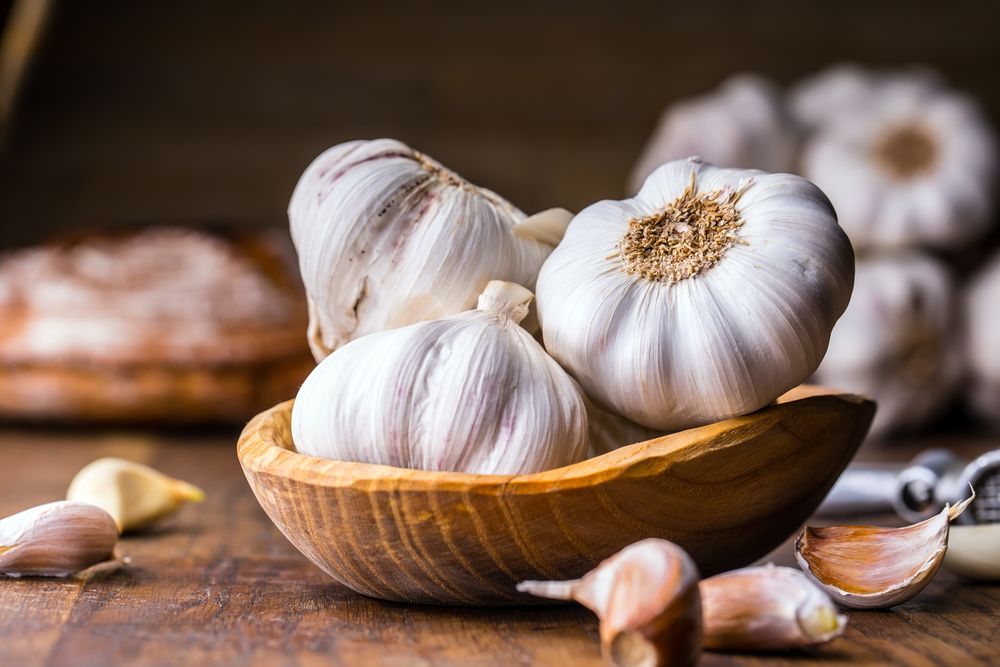
Garlic, with its pungent white cloves bursting with flavor, isn't just a culinary delight—it's also been long cherished for its potential health benefits, including its ability to aid in lowering cholesterol levels. Research suggests that garlic may modestly decrease cholesterol levels, offering potential advantages for individuals focused on maintaining heart health. The active compounds found in garlic, such as allicin, are believed to be responsible for these effects, providing a natural solution for those seeking to complement their heart-healthy lifestyle.
"According to a recent review," notes Alyssa Simpson, RDN, CGN, CLT, owner of Nutrition Resolution in Phoenix, AZ, "garlic has demonstrated promise in reducing cholesterol levels." This is attributed to compounds within garlic that disrupt cholesterol production in the liver, notably lowering LDL (bad) cholesterol.
8) Bamboo Shoots

Incorporating bamboo shoots into one's dietary regimen can serve as an effective strategy for managing cholesterol levels. These shoots boast not only low-calorie content but also a wealth of dietary fiber, a critical element for cardiovascular well-being. The fiber present in bamboo shoots may bind with cholesterol in the digestive system, facilitating its elimination and thereby aiding in the reduction of overall cholesterol levels in the body.
"Traditionally esteemed as a vital ingredient in Asian cuisines, bamboo shoots feature prominently in dishes such as ramen and stir-fries," explains Qianzhi Jiang, PhD, RDN, LDN, Founder of The Nutrition Changer. "A recent study demonstrated significantly lower cholesterol levels in mice fed bamboo shoots, along with beneficial effects on gut bacteria composition," Jiang adds. "This holds promise for addressing various conditions, including high cholesterol and obesity." While further human-based research is warranted, this development presents exciting prospects in the realm of cholesterol management.
9) Margarine with Plant Stanols
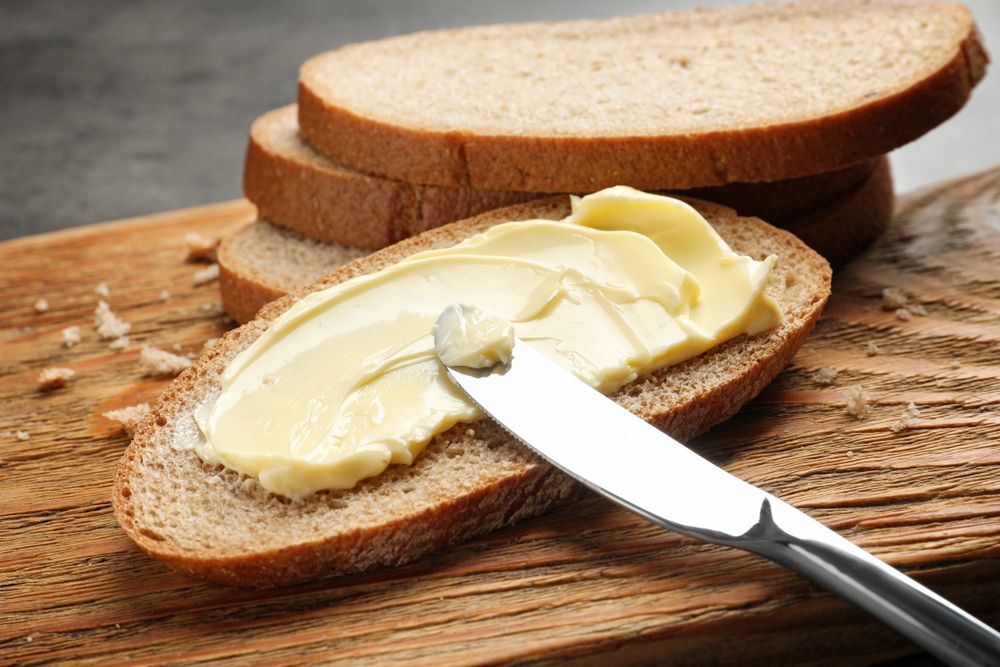
Margarine fortified with plant stanols represents a specialized spread aimed at reducing cholesterol levels, offering a heart-healthy alternative to conventional butter or margarine. Plant stanols, derived from natural sources, possess the ability to impede cholesterol absorption in the digestive system, potentially leading to decreased total and LDL cholesterol levels when integrated into a well-rounded diet.
The research outlined in Nutrients suggests that consuming between 1.5 to 3 grams of plant stanols daily may result in LDL cholesterol reductions ranging from 7.5% to 12%.
10) Fatty Fish

"Omega-3 fatty acids found in fatty fish such as sardines and mackerel possess cholesterol-lowering properties, primarily attributed to their specific types of omega-3s, EPA and DHA," explains Wan Na Chun, MPH, RD, CPT, Owner of One Pot Wellness based in Indianapolis, IN. "These fatty acids play a pivotal role in decreasing triglyceride levels in the bloodstream, a type of fat that contributes to the risk of heart disease," she adds.
Chun elaborates that omega-3 fatty acids work to lower triglycerides by inhibiting the synthesis of very low-density lipoprotein (VLDL), a precursor to LDL cholesterol. She highlights studies indicating that regular consumption of fatty fish rich in omega-3s leads to notable reductions in triglyceride levels, underscoring their positive impact on cholesterol profiles and overall cardiovascular health.
11) Barley
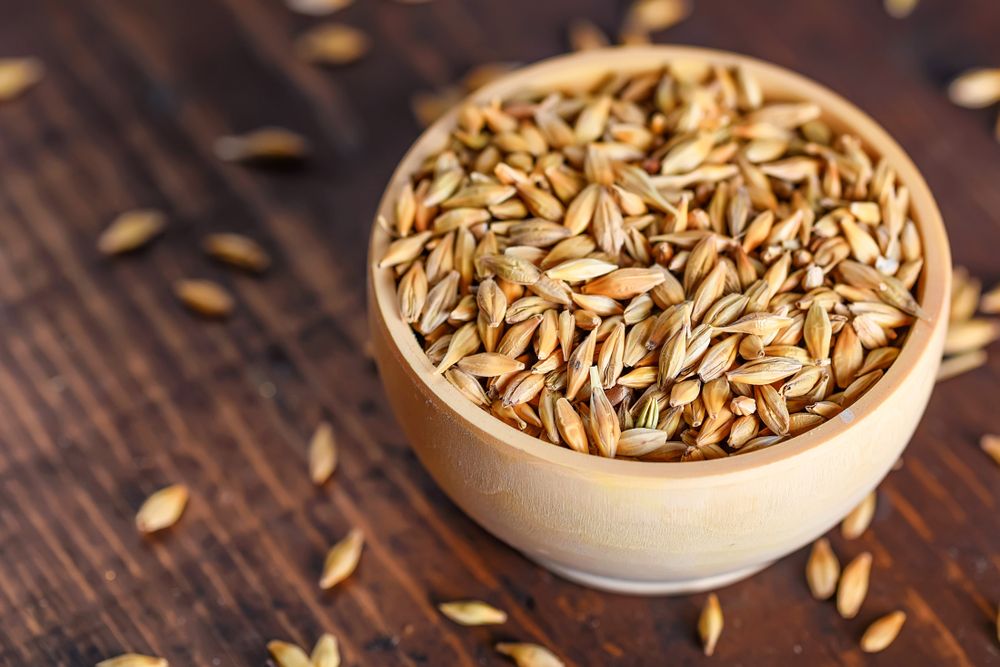
Barley, a versatile cereal grain boasting a robust, nutty flavor and a delightfully chewy texture akin to pasta when cooked, holds a storied history dating back to ancient civilizations. It finds its way into an array of culinary creations, spanning from bread and soups to stews and salads. Beyond its culinary appeal, barley emerges as a notable source of dietary fiber, vitamins, and minerals, offering benefits for heart health, digestion, and overall nutritional balance.
"The beta-glucan present in barley, a type of soluble fiber, specifically targets LDL," explains Lori McCall, MS, RD, LDN, a freelance plant-based writer based in Western NC.
A 2009 review published in the Annals of Family Medicine showcased significant reductions in LDL, triglycerides, and total cholesterol levels after just a few weeks of incorporating barley into the diet.
12) Apples
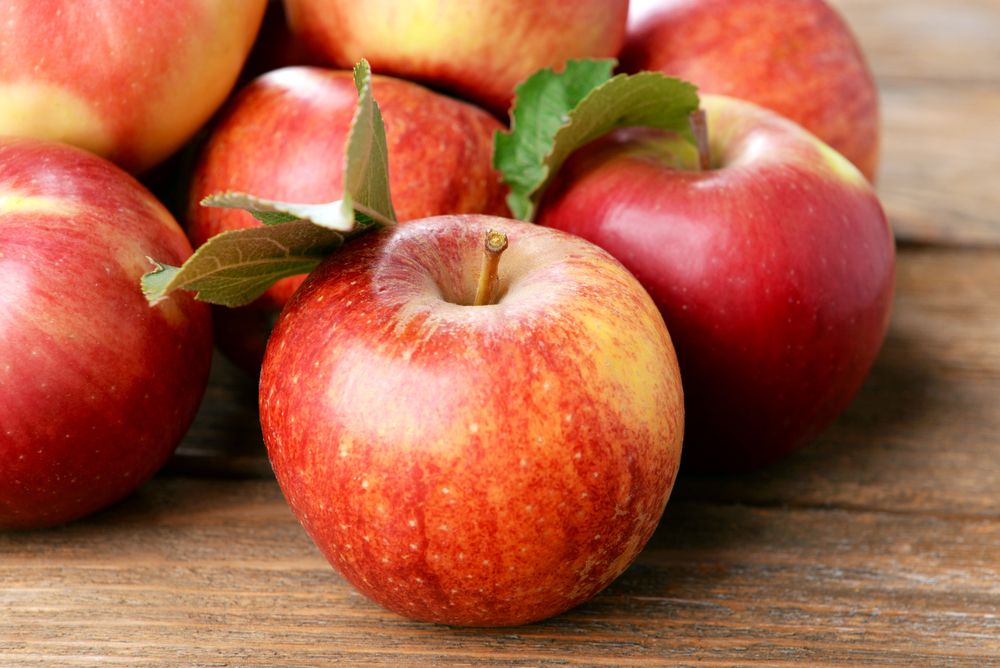
Apples are renowned for their capacity to lower cholesterol levels, largely attributed to their abundant soluble fiber content. Soluble fiber engages with the digestive system by binding with water, forming a gel-like substance that ensnares cholesterol, preventing its absorption into the bloodstream. Additionally, apples harbor polyphenols, which contribute to heart health by reducing blood pressure and inflammation.
A study highlighted in the American Journal of Clinical Nutrition revealed that individuals who consumed two apples daily over eight weeks experienced a reduction in LDL cholesterol levels.
13) Blueberries
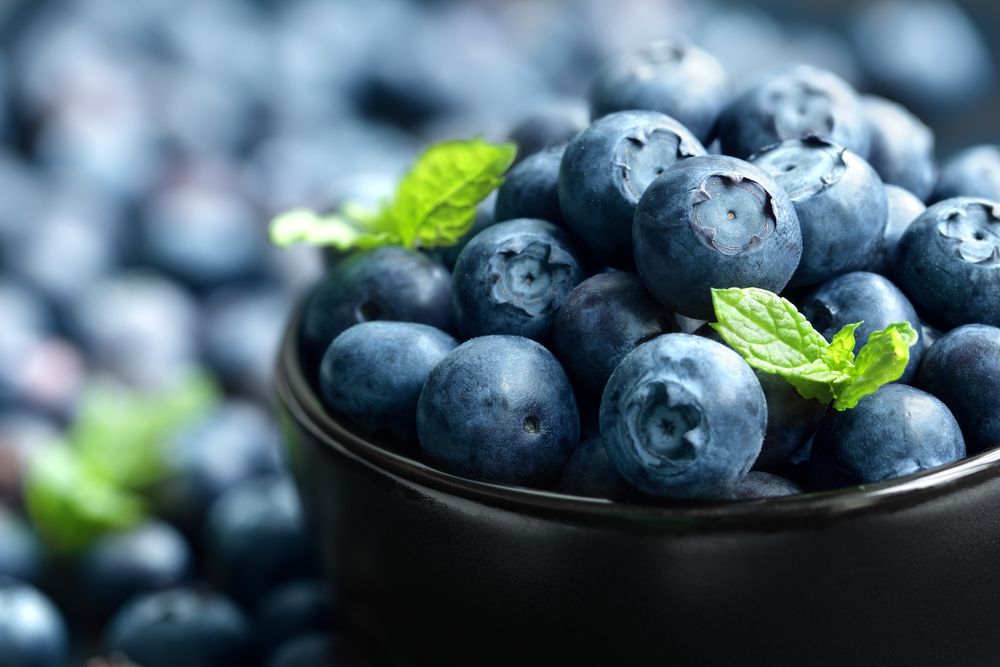
Blueberries are celebrated for their cholesterol-lowering properties, owing to their rich content of soluble fiber and antioxidants. The soluble fiber present in blueberries aids in reducing LDL cholesterol levels in the bloodstream. Additionally, the potent antioxidants found in blueberries, particularly anthocyanins responsible for their vibrant color, have demonstrated efficacy in preventing cholesterol oxidation and the accumulation of plaque in artery walls. This dual mechanism makes blueberries an exceptional dietary choice for supporting heart health and diminishing cardiovascular risk.
A 2016 meta-analysis encompassing 22 studies revealed that consuming berries significantly lowered levels of low-density lipoprotein (LDL)-cholesterol, along with other factors such as Hemoglobin A1c (HbA1c).

